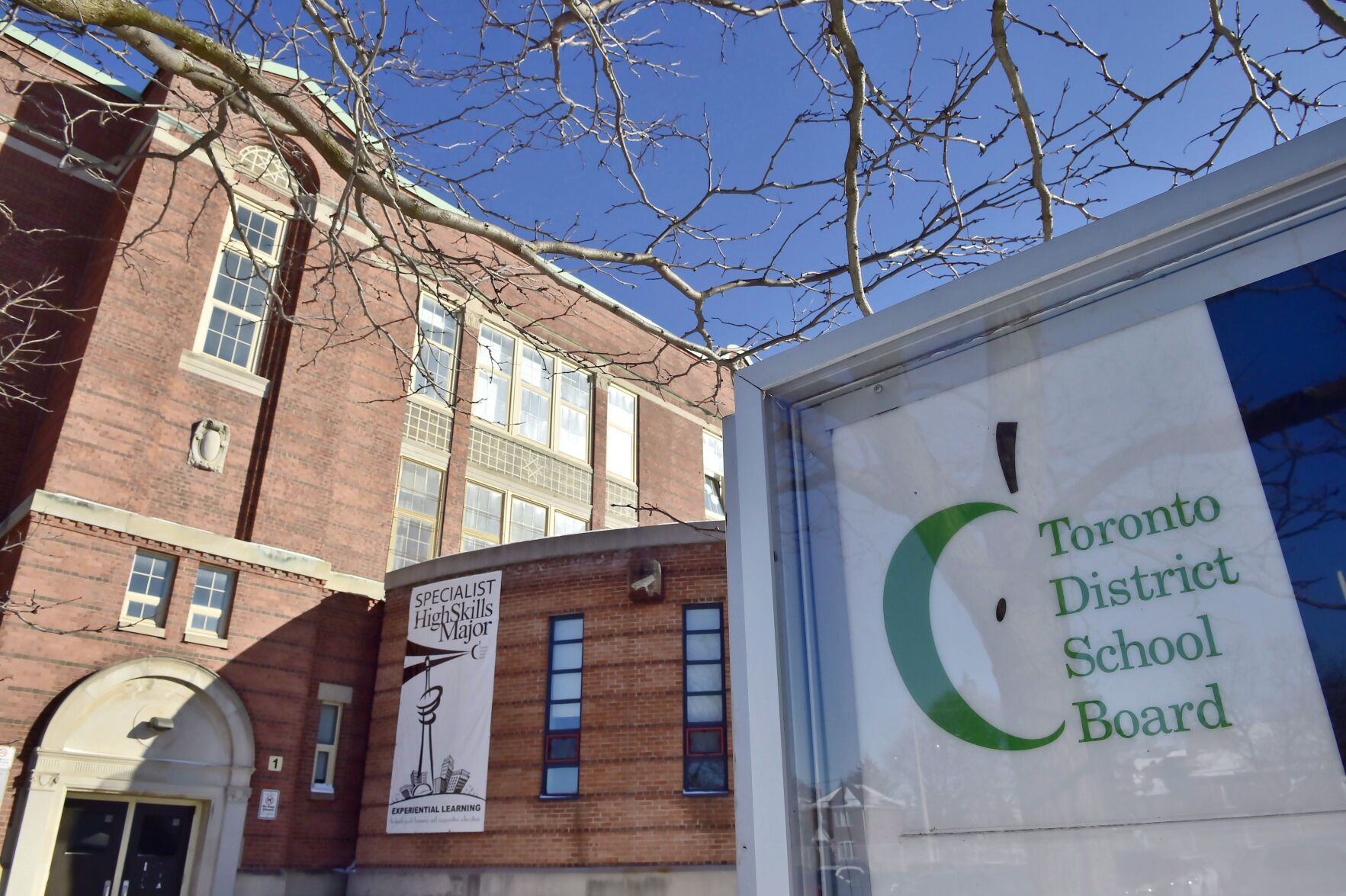The group of Black girls were chatting in the hall on their way to their next class when a teacher told them to hurry.
When the students didn’t immediately speed up, the same teacher allegedly said: “Oh, what if it was a bucket of fried chicken? You’d be running.”
Examples like these came up again and again while Olivia Bernard, a University of şŁ˝ÇÉçÇřąŮÍřPhD student, researched the experiences of Black female students at a Black Creek-area high school in 2021 and 2022.
Stereotypes about Black girls lead to disproportionate discipline from teachers and staff, she said.
Bernard’s research, along with a separate U of T study looking at Somali students in Rexdale, both heard from Black students that they are overly disciplined, discriminated against and face greater academic challenges than their peers.Â
The two studies are the latest indication that anti-Black racism persists within the TDSB and is harming Black students, despite efforts from the board over the past few years to . They also come after a sweeping report from the Ontario Human Rights Commission this spring called for “bold” action to address anti-Black racism in the province’s public schools.Â
In particular, the new research from Bernard and Ahmed Ilmi, a U of T professor, suggest that some Black students face an achievement gap due to discrimination in the classroom and a lack of support systems.
“Our system is designed to uniformly be able to educate all, irrespective of race, class, gender and so forth,” Ilmi told the Star. “But it seems that certain ethnicities — the Black community — are excluded from achievement systemically.”
Ilmi spoke with 32 former TDSB students in Rexdale who identify as Muslim and as part of the neighbourhood’s Somali diaspora community. While the study — the findings of which  — was more broadly focused on how these young Black people have created a unique cultural identity, Ilmi heard from many of those interviewed how experiencing Islamophobia and anti-Black racism at school felt “dehumanizing.”
Some of the interviewees described moments when they were labelled “terrorists” by teachers for wearing a hijab or other traditional Muslim clothing, or instances when they felt they were being punished for speaking up when other, non-Black students would be praised.
Bernard also said students felt they were excessively disciplined, lacked exposure to “Black excellence,” such as role models in high-paying positions, and had fewer chances to enrol in more academically rigorous programs like the International Baccalaureate.
The students said this made it harder for them to set high standards for themselves.
While Ilmi and Bernard’s studies focused on specific communities within the TDSB, the researchers suggested that these experiences are widespread.
Despite going to school in a predominantly Muslim area in Scarborough, Grade 12 Black student Mohamed told the Star he and his friends have sometimes felt discriminated against by staff. The Star agreed to only use his first name due to concerns around the student’s privacy.
Back in his Grade 10 English class, Mohamed, who described himself as a student who “constantly participates,” remembers a supply teacher purposely ignoring his raised hand; or if he was chosen, he felt that the teacher just “brushed off” his answer.
“It made me scared to ask for help because I didn’t want to be embarrassed in front of my class,” Mohamed said, adding that he later learned other Black students had similar complaints about the temporary teacher.
Ilmi and Bernard also said their research has implications beyond the classroom, particularly as Black youth are often stereotyped as criminals or violent.
“The classroom is the first place where you learn your place in the world,” Ilmi said. “When you feel out of place in the classroom, you’re disconnected from the rest of society.”
To address these issues, the researchers said the TDSB needs to hire more Black teachers, improve the existing anti-bias training that non-Black teachers receive, and invest more resources into the Centre of Excellence and Black Student Achievement — a program that launched in 2021 that Bernard said was “grossly under-resourced” with too few staff compared to the number of schools requiring support.
“It means that each (Centre of Excellence) member is better able to serve a school that they are facilitating,” Bernard said, “and that’s very important because that can feed into that discussion of training and educating.”
Both Ilmi and Bernard also said the TDSB needs to find better ways to engage directly with Black students.
“There needs to be conversations where you’re not just shouting at them to go to class because sometimes they’re not being properly served in those classes,” Bernard said.
The TDSB did not respond to the Star’s request for comment by publication.
Despite the challenges that Black students in the TDSB face, Ilmi stressed that some of these students are still “dreaming big.”
“It wasn’t like they folded their hands and expected that they weren’t doing great things,” he said. “They had great hopes and aspirations for achieving everything that they were told that they were not.”





























To join the conversation set a first and last name in your user profile.
Sign in or register for free to join the Conversation